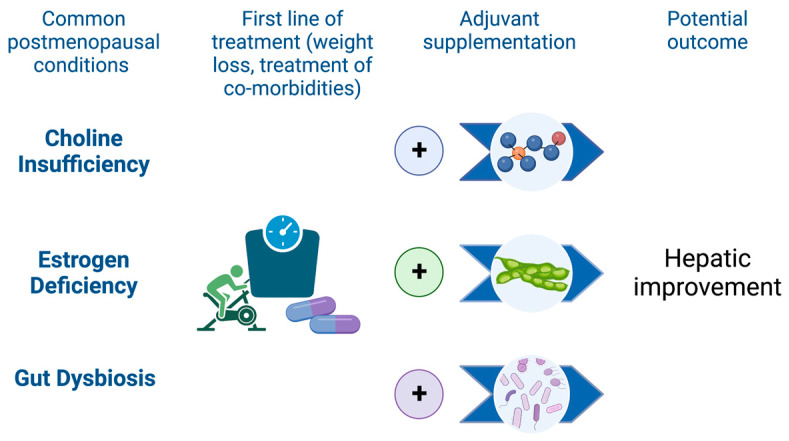Figure 2.
Adjuvant nutritional strategies may enhance primary NAFLD management in postmenopausal women. Weight loss, lifestyle factors, and clinical management of comorbidities remain the cornerstones of therapy for NAFLD. Nutritional factors may further enhance the effectiveness of first-line therapy in specific subsets of postmenopausal patients. Increased choline intake, either through choline-rich foods or supplements, may help to resolve liver function in postmenopausal women who have a choline-depleted diet, genetic risk factors, or estrogen deficiency. Consumption of soy foods may provide hepatic benefit to postmenopausal women, especially those who can produce equol, through estrogen-like effects. In postmenopausal women with gut dysbiosis, supplementation with probiotics or consumption of fermented foods may correct microbial imbalance, leading to improvements in hepatic function. (Figure created with BioRender.com, accessed on 31 May 2023).

